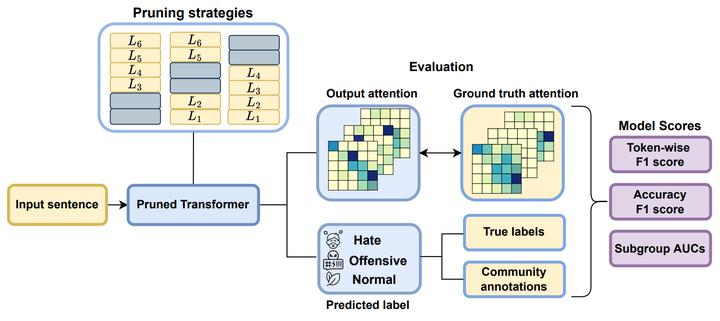
Abstract
Social media platforms have become popular worldwide. Online discussion forums attract users because of their easy access, speech freedom, and ease of communication. Yet there are also possible negative aspects of such communication, including hostile and hate language. While fast and effective solutions for detecting inappropriate language online are constantly being developed, there is little research focusing on the bias of compressed language models that are commonly used nowadays. In this work, we evaluate bias in compressed models trained on Gab and Twitter speech data and estimate to which extent these pruned models capture the relevant context when classifying the input text as hateful, offensive or neutral. Results of our experiments show that transformer-based encoders with 70% or fewer preserved weights are prone to gender, racial, and religious identity-based bias, even if the performance loss is insignificant. We suggest a supervised attention mechanism to counter bias amplification using ground truth per-token hate speech annotation. The proposed method allows pruning BERT, RoBERTa and their distilled versions up to 50% while preserving 90% of their initial performance according to bias and plausibility scores.